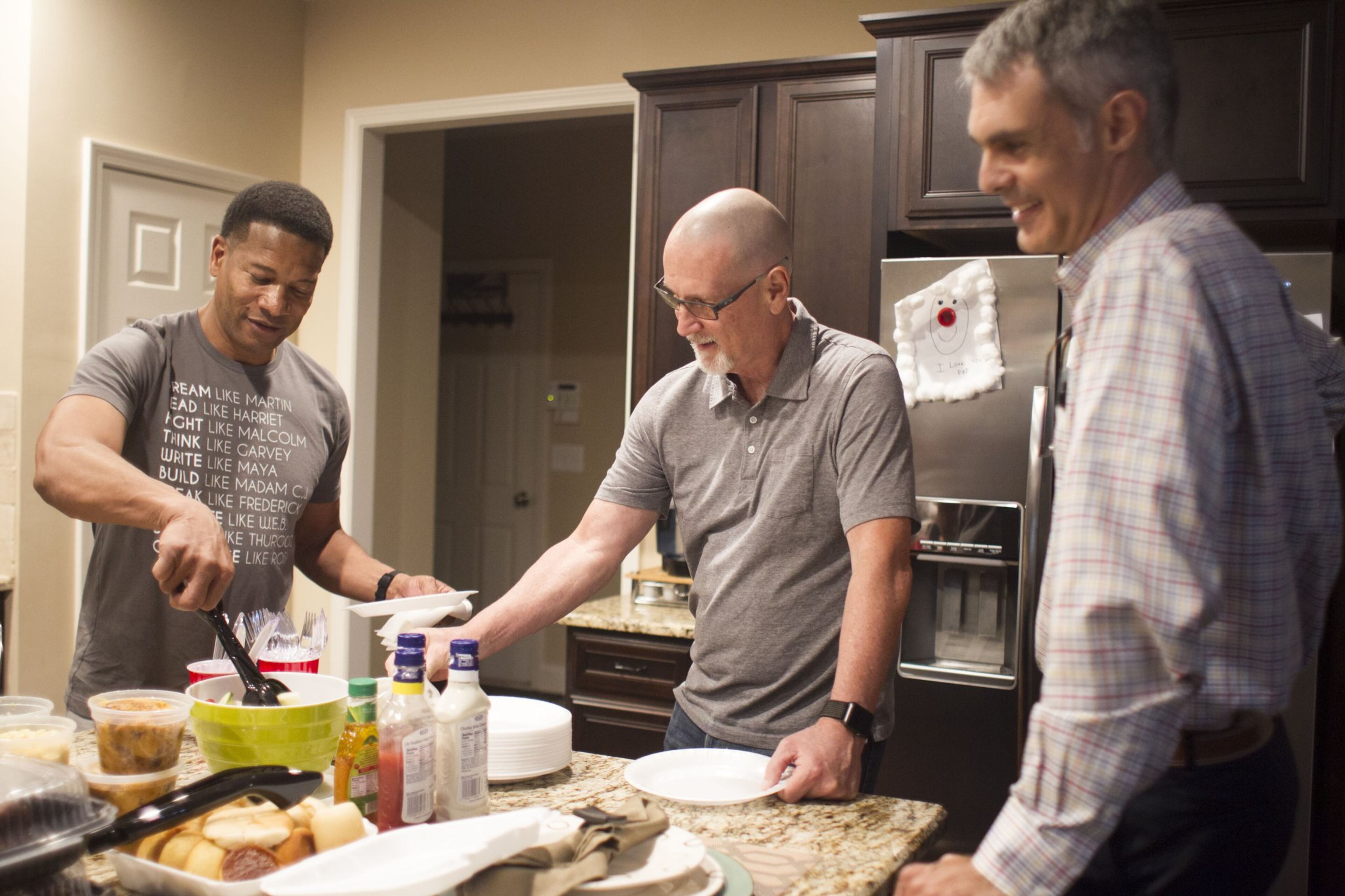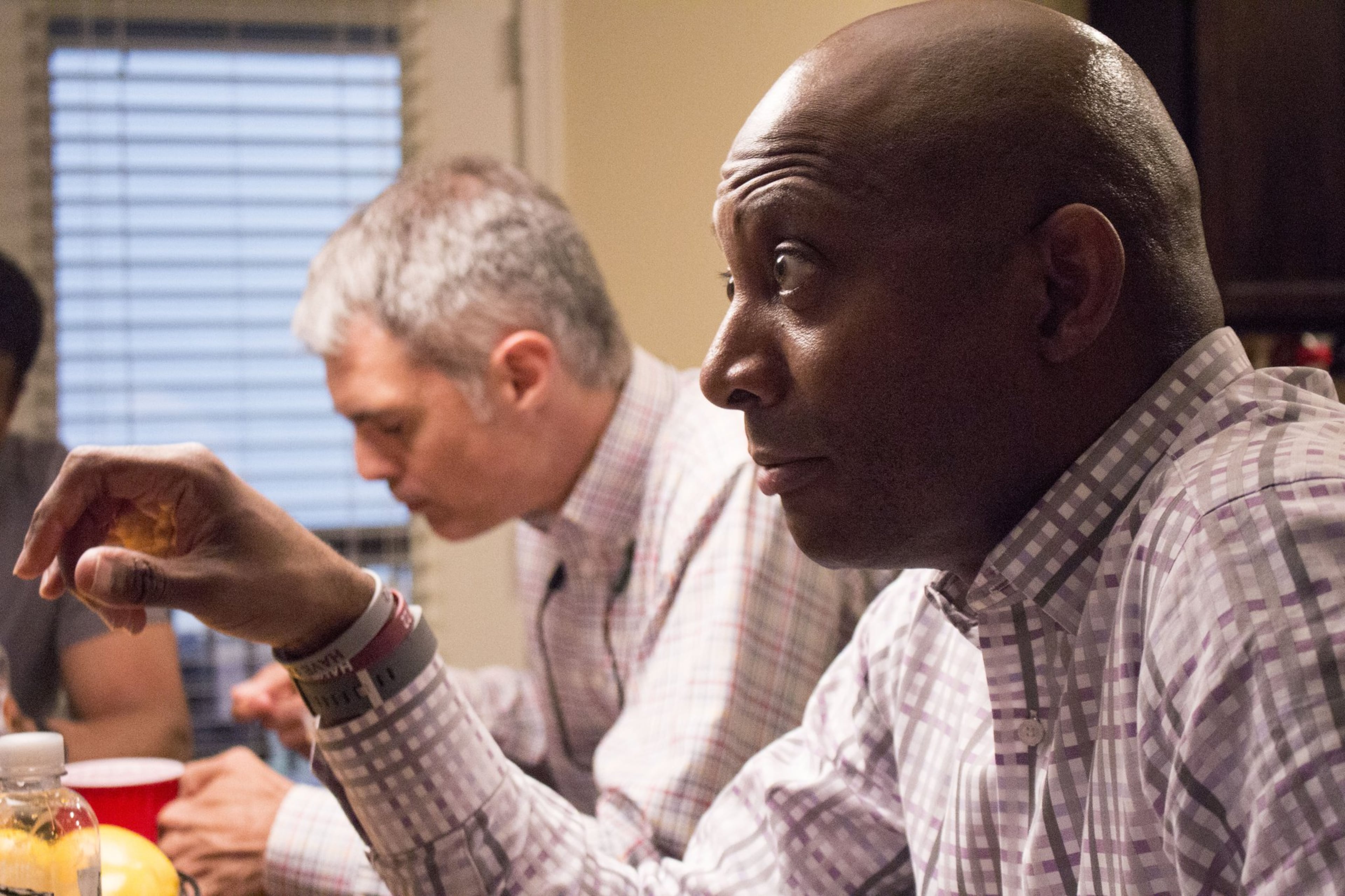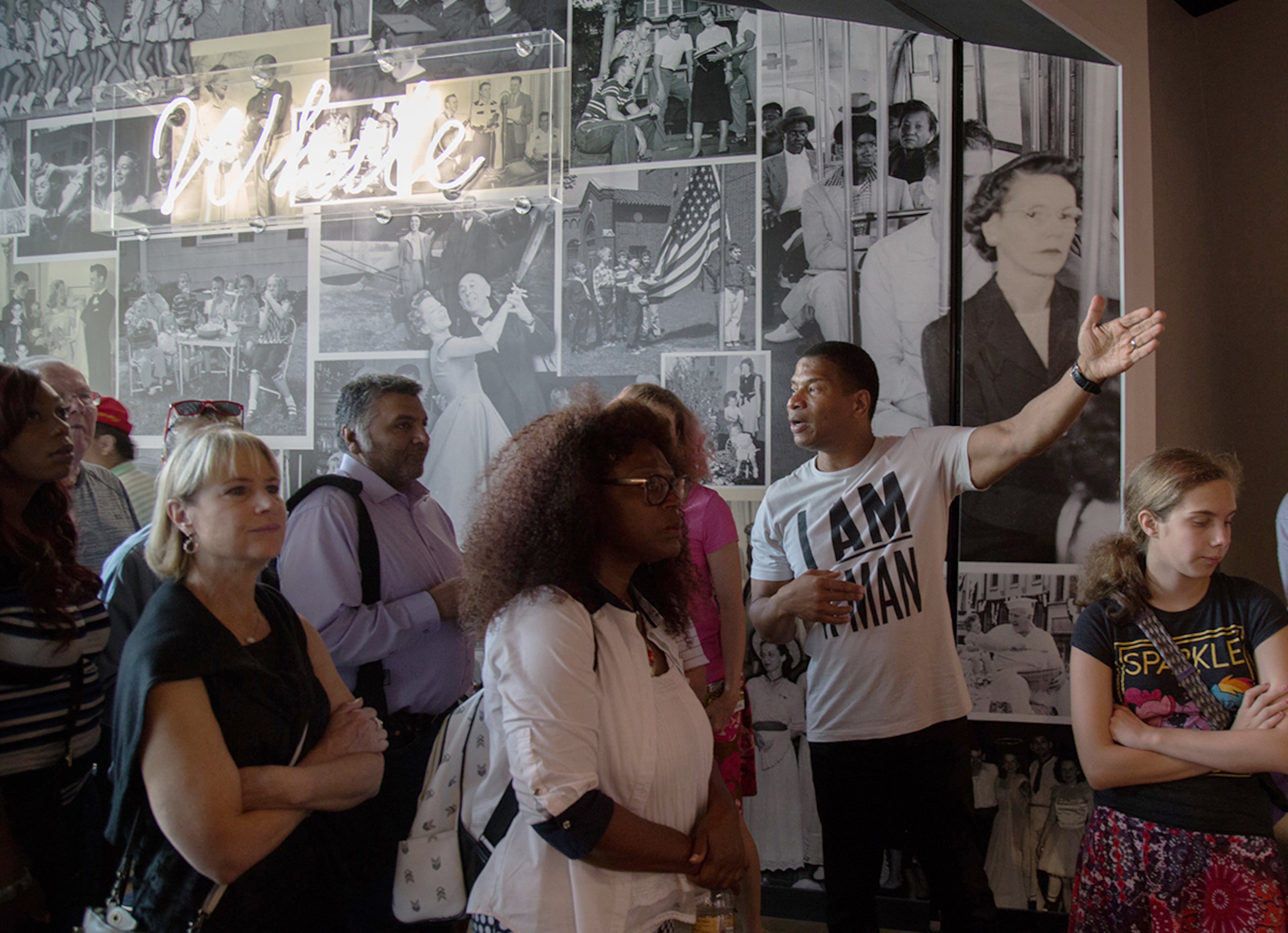Roswell churches seeking racial reconciliation ask, ‘What’s next?’

Last year, two Roswell churches, one predominantly black, the other predominantly white, embarked on an ambitious project.
The congregations were reeling from a series of high-profile, racially charged, police-involved killings of African-Americans. Eagles Nest and Roswell Community church congregations wanted to talk about the role race plays not only in policing, but in their lives. They knew they couldn’t solve the dilemma of race, but doing nothing did not seem like an option.
So, they began a four-month project meeting in small groups in their homes to see if bridge building was possible. Could open, honest relationships be developed if the question of race was not addressed?
It was a demanding and sometimes contentious exercise. The Atlanta Journal-Constitution documented the "Conversations" process in an exclusive report last summer. But what seemed like a potential one-off endeavor for two congregations is slowly expanding to other metro Atlanta churches, including the nationally influential North Point Community Church in Alpharetta.
Yet, even as “Conversations” grows, declaring the initial foray a success, or even deciding what success looks like, has proved complicated.
“The utopian desire for us to be two churches, fully integrated in friendship, there’s only so much of that that’s realistic in terms of what we were trying to do,” said Matt Miller, pastor of Roswell Community Church, a predominantly white congregation. “There has been some tangible awakening. But by no means are we saying, ‘Hey, we figured this out and it really works. Amazing.’ We’re not naive.”

‘We can’t judge’
Since the pilot project concluded a little more than a year ago, members of the two churches have participated in three more, 4-month-long “Conversations” cycles. They were joined by a small group of people from other congregations and organizations, including the National Christian Foundation of Georgia.
Apart from potluck dinners, where they tackled hard topics such as racial stereotyping and profiling, they’ve also wrestled with third-rail issues, such as the current political climate and systemic racism. There have been trips to the Center for Civil and Human Rights in downtown Atlanta, book discussions and movie nights — such as one to see the Marvel blockbuster, “Black Panther.”
To some observers, such excursions might seem pointless. Those who’ve been through at least one cycle say those moments have been fruitful.

“In talking about racism, as you advance it with one person, they are affected. Then the people around them are affected, then the people around them,” said Stephen Gilkenson, a member of the pilot program, who has become a key player in the program’s expansion. “How do we unlearn that we as white people don’t own the culture and we can’t look down on others and judge. I think that’s the goal.”
For Lee Jenkins, the Eagles Nest pastor who conceived the dialogue series and welcomed Roswell Community Church into the process, he’d been hopeful the change might have moved more quickly. He has had to measure progress incrementally.
“When things happen now, like Roseanne Barr or Trump’s comments about ‘(expletive)-hole countries,’ people call each other, ” said Jenkins. “Instead of making an assumption, (the white participants) want to know what their new black friends think. It’s not that they are clueless, but they now know there is, or could be, another perspective.”

Corliss Kinard and her husband, Melvin, participated in two cycles of the series, including the first one. They are African American. A few genuine, interracial friendships were forged, Corliss Kinard said, including one between her family and a white couple who were also original participants. There have been double dates, a Christmas party, and general check-ins.
“It enlightened all of us,” Kinard said.
But in the larger groups, the conversations remained focused on race, she said. At first it was liberating, but later felt limiting.
“The conversation keeps coming back to the same question: What are we going to do about it,” Corliss Kinard said. “Sitting in homes, how much of that are you going to do? It’s like school. You keep going, but one day you have to stop and move on. You have to move forward.”
‘Cost is high for all of us’
This is a common issue that racial reconciliation efforts run into, said Jennifer Harvey, author of “Dear White Christians,” and a professor of religion at Drake University. People may start out well-intentioned and want to experience some form of enlightenment, but it won’t come without action.
“For this venture to have meaningful fruit, a next step will have to be shared dialogue about structural racial injustice and some educational work together that allows them to find ways to be involved in racial justice work together, not just dialogue,” Harvey said. “These conversations have been done over and over and it rarely leads to white folks getting in the street for black lives, both in protests and in more subtle forms.”
In her classes, Harvey, who is white, has seen how difficult it is to get people of different races talking about race. To get them to open up, she said she starts by having them study not slavery in the U.S., but how government programs such as the G.I. bill, Social Security or the Federal Housing Administration got started. Early on, all of those programs had provisions that effectively barred African-Americans from accessing them. Those policies made it difficult for many African-Americans to begin to build generational wealth. The ripple effects are felt to this day, she said.
“I’m not trying to make them feel personal blame, but they have to assume personal responsibility as to whether they are going to do something about it,” Harvey said. “The cost of racism is high for all of us, not just people of color.”
It’s the “how” that Jenkins and leadership at North Point Community Church are sorting out as they prepare to roll out a version of “Conversations” at the Alpharetta campus in late summer or early fall. The church has 30,00o attendees across six campuses. It is an overwhelmingly white congregation.
Ameera Joe, who is African-American, directs the church’s work with non-profits. She invited Jenkins to meet with church leadership because, she said, she’d like to see the church reflect the broader community in the pews each Sunday.

“Race is something that is dividing our nation as Christians, and we’re called to a higher standard,” Joe said. “If we’re able to get it right, we could influence other churches around the world to address this issue and take it head on.”
But to do that, the long-term prospects of the project depend on buy-in from African-American congregations other than Eagles Nest.
“Many of the majority white churches don’t know how to approach this subject,” said Jenkins. “They may have the desire, but they usually don’t do anything because they fear it might be the wrong thing. But it won’t work of it’s just white people talking to each other.”
Because of metro Atlanta’s sprawl and the projects model of regular meetings, Jenkins said it seemed most practical to target churches in the same geographic area. There are several historic African-American churches in the Roswell/Alpharetta area, though none of them have participated in the project so far, Jenkins said.
Michael McQueen is pastor of St. James United Methodist Church in Alpharetta. The African-American church is among the oldest in the area, founded in 1867. McQueen said his church has done a similar partnership with local, predominantly white fellowships in the past, but not currently. Though he described them as friendly, such cross-racial efforts are difficult to maintain.

“I’m not going to speak for the entire black race, but trust would be the salient issue against entering into a partnership, based on history,” McQueen said. “How do you know a person is sincere? It takes time to build trust.”
Still, McQueen said, he wouldn’t rule out participating if invited.
“If we as Christians can’t exude love and reconciliation, then it’s lost,” McQueen said.
In the next month, a “Conversations” group that has met since spring will wind up. Boyd Bailey, president of the National Christian Foundation of Georgia, has been a part of it. Though he was bused to a predominantly black school in Mississippi as a child, there was much he did not know about how race works — not just in the lives of African-Americans, but his own.
He credits the past few months with opening his eyes to things that have been right in front of him. For example, Bailey wasn’t aware of sentencing disparities for African-Americans versus whites in the criminal justice system, he said. He has been sharing the lessons with his grown daughters and young grandchildren.
“Ultimately, it’s a change of heart,” Bailey said. “That’s the solution.”
Our Reporting
Last summer, The Atlanta Journal-Constitution published a long-form report about two Roswell churches — one black, one white — that had begun a racial reconciliation effort in the aftermath of several police-involved killings of African-Americans. The AJC spent months with the participants, as they grappled with vexing issues of disparities and mistrust across the racial divide. After the AJC’s exclusive report, several churches contacted Eagles Nest Church — where the initiative began — to find out how they could participate. In this story, church leaders talk about plans for the program’s expansion.


